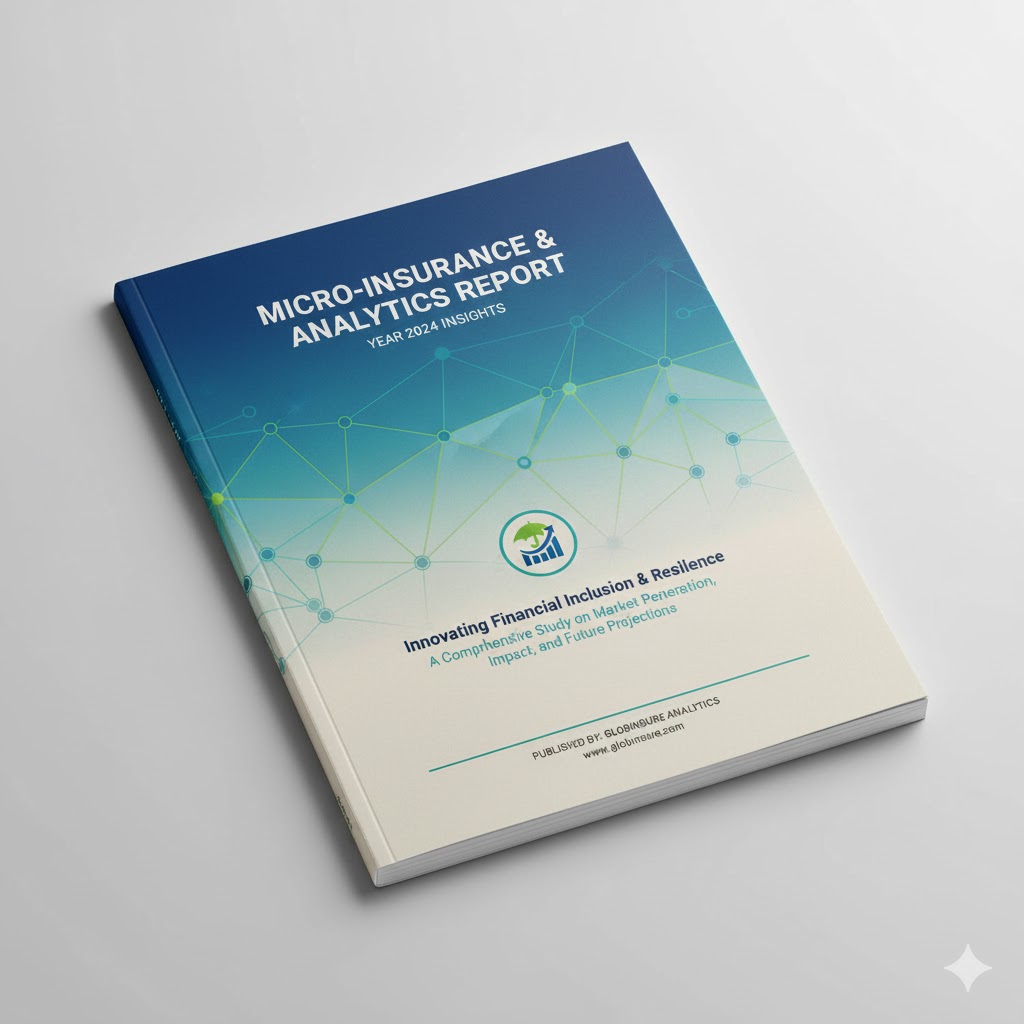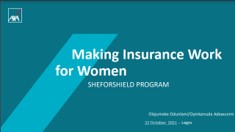Displaying 16 - 30 of 31

Making Access to Insurance Happen for People with Disabilities and Small Businesses and Micro-entrepreneurs
WFP piloted an inclusive weather-index insurance scheme for ~4,800 people in El Salvador, targeting women entrepreneurs and people with disabilities. The product enabled fast payouts during climate shocks and removed traditional credit-based enrollment barriers.
Date d'émission
2021
Sujets
Sujet (Produit)

Making climate risk microinsurance work. Case Study: Green Delta Insurance Company (GDIC), Bangladesh
Making climate risk microinsurance work: Green Delta Insurance Company in Bangladesh. This case study explores the origin, design, and delivery of Green Delta's agricultural microinsurance program. It reviews pricing mechanisms, subsidy structures, operational challenges, delivery models, and real-world performance results. The analysis offers key lessons for building climate resilience through private-public partnerships in emerging markets.
Date d'émission
2022
Sujets
Sujet (Produit)
Région

Making climate risk microinsurance work. Case Study: Kenya Agriculture Insurance Program (KAIP) with APA, Kenya
Information on the Kenya Agriculture Insurance Program developed in partnership with APA Insurance. The overview includes pricing structures, government subsidy mechanisms, challenges in implementation, delivery models, and overall performance metrics. The case outlines key lessons learned from executing a national climate risk microinsurance scheme in a Sub-Saharan African context and provides insight into scaling agricultural resilience through public-private collaboration.
Date d'émission
2021
Sujets
Sujet (Produit)
Région

Making Climate Risk Microinsurance Work. Case Study: MiCRO & Aseguradora Rural (AR), Guatemala
Partnership between MiCRO and Aseguradora Rural to deliver parametric climate microinsurance to smallholder farmers and microentrepreneurs in Guatemala through bundled loans.
Date d'émission
2022
Sujets
Sujet (Produit)

Making climate risk microinsurance work. Case Study: Philippine Crop Insurance Corporation (PCIC), Philippines
Case study of the Philippine Crop Insurance Corporation (PCIC) and its role in climate risk microinsurance. This diagnostic overview outlines PCIC's origin, goals, and subsidy model, and examines the challenges and performance of its delivery system. The paper also highlights pricing strategies, key operational hurdles, and practical lessons learned — contributing to a broader understanding of how public sector agricultural insurance can support resilience in Asia.
Date d'émission
2021
Sujets
Sujet (Produit)
Région

Making Insurance Work for Women - SHEFORSHIELD PROGRAM
Making Insurance Work for Women – SHEFORSHIELD PROGRAM. Information on the insurance sector in Colombia in 2020, inclusive insurance premiums written, financial inclusion institutional framework, public-private actions and lessons learned/challenges, with a focus on gender-specific insurance innovation and outreach in Sub-Saharan Africa, particularly Nigeria.
Date d'émission
2021-10-27
Sujets
Sujet (Produit)
Région

MALAYAN INSURANCE, PHILIPPINES - The case for insuring women for a better tomorrow
This World Bank report analyzes how Philippine insurers adapted to COVID-19 and how their inclusive insurance models helped maintain resilience for over 38 million microinsurance policyholders. The study highlights product innovations, digital transformation, and lessons for future crisis response through inclusive insurance strategies.
Date d'émission
2020
Sujets
Sujet (Produit)
Région

MiCRO / SBS / Bancamía – Boosting Resilience for Microentrepreneurs
In 2019, MiCRO and SBS Seguros, in partnership with Bancamía, launched "My Protected Investment", a microinsurance product for SMEs that combines index-based and traditional coverage. Three years after Colombia's first parametric insurance launch, the initiative had already reached almost 120,000 low-income beneficiaries, providing protection against hazards such as excess rain, drought, and earthquakes, while expanding access to underserved urban and rural clients.
Date d'émission
2023
Sujets
Sujet (Produit)

Microinsurance and Social Protection: Fiji Country Case Study
WFP and UNCDF piloted cyclone parametric insurance in Fiji for ~325 vulnerable households. This macro–micro model enabled payouts via mobile wallets within 3–5 days after disasters, offering financial protection to the poorest social welfare recipients.
Date d'émission
2023
Sujets
Sujet (Produit)
Région

Nepal: Introducing index-based insurance for flood-prone communities
Practical Action developed a flood index insurance for Western Nepal smallholder farmers. Features bundled services, cooperative-based sales, and payouts for crop loss after severe floods.
Date d'émission
2022
Sujets
Sujet (Produit)
Région

OKO for UN WOMEN & UNCDF: Case study
An index-based crop insurance product tailored specifically for women smallholder farmers in Mali. This inclusive approach improves gender equity and strengthens financial protection for rural women by providing climate-resilient risk coverage. The model aims to address both agricultural vulnerability and structural gender gaps in access to insurance.
Date d'émission
2022
Sujets
Sujet (Produit)
Région

Promoting access to insurance for people with disabilities and small and micro entrepreneurs – The case of El Salvador
In El Salvador, most small farmers and micro-entrepreneurs face frequent economic and climate shocks without adequate insurance. To bridge this gap, the World Food Programme and local partners are piloting an innovative insurance solution covering over 950 farmers and micro-entrepreneurs (46% women) against business interruption caused by excess rainfall, drought, or earthquakes.
Date d'émission
2021
Sujets
Sujet (Produit)

Skyline Partners: Protecting Jamaican Credit Unions from Tropical Cyclones with FatTrack™ Parametric Insurance: Timely Payouts During Hurricane Beryl
The document presents a case study on Skyline Partners' FatTrack™ parametric insurance solution, designed to protect Jamaican Co-operative Credit Unions (JCCUL) from financial risks associated with major hurricanes. Utilizing independently reported wind field data, the solution offers precise and timely payouts, as demonstrated during Hurricane Beryl.
Date d'émission
2025
Sujets
Sujet (Produit)

WFP Nicaragua – Insurance and Social Protection: A Key Tool to Increase Resilience and Food Security in Nicaragua
WFP Nicaragua implemented a risk-layered insurance approach through the R4 Rural Resilience Initiative and sovereign CCRIF coverage.
Date d'émission
2023
Sujets
Sujet (Produit)

WFP Southern Africa
WFP's R4 initiative insures 8,000+ households in Zimbabwe and Mozambique against drought, floods, and cyclones using area-yield and weather index insurance, in partnership with local insurers.
Date d'émission
2021
Sujets
Sujet (Produit)
Région
